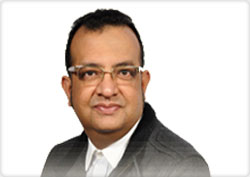< Herniated Discs >
Herniated Discs or slipped disc is a problem related to the discs present between the vertebrae of the backbone. A human backbone consists of 26 bones known as vertebrae with a disc of soft material present between each of them so as to provide the needed cushion. The cushion like material is subjected to a lot of pressure and with age, the discs start getting tears and this remains a prominent reason for back pain in most individuals. Herniated discs is one of the the names given to the condition when the discs rupture and the jelly-like substance begins to leak. This can result in compression of the nerves around the vertebrae which causes considerable back pain.
Descriptions
Herniated discs or slipped disc is a problem that is found amongst the elderly most often as this is one problem that usually develops with age. The discs start off as very soft material like sacs between the vertebrae in little children and then start to solidify with age. This process of becoming harder has an impact on the outer lining of the disc as well and makes them far more prone to injury or ruptures as a result. It is important to note that stress remains a major contributing factor in the condition as well. People who bend or reach out a lot, people who are overweight and people who carry a lot of heavy weight remain the most prone to the problem of herniated discs.
Types
Herniated Discs are divided into three types on the basis of the area in the spinal column of whom the disc slips or ruptures. The lumbar area or the lower back remains the most affected region with most people who suffer from herniated discs deal with a slipped disc in the lower back region. However, the discs in the cervical region (upper back and neck) also have the tendency to slip or rupture. The discs of the thoracic region (middle to upper back) offer the least complaint as far as herniated discs are concerned.
The discs may belong to any region but their affects remain pretty much similar. The nerve roots get affected because of the herniation or because of the rupture of the discs as these nerves are actually the ones that branch out from the vertebrae in the spinal cord. And when these nerves get affected or compressed, it leads to numbness, loss of feeling and pain in that region of the body.
Symptoms
A lot of people confuse the problem of herniated discs with normal back pain and thus, leave it untreated. However, the condition of herniated discs manifests itself through clear symptoms. One of the most common indicators of the problem is the feeling of pain or numbness and weakness in only one side of the body. If the ruptured disc lies in the lower back region then the sharp pain would be felt in and around the calf, buttocks and hip. However, in case the disc belongs to the cervical region, the pain would be present in the arm, shoulder, fingers and neck.
The pain brought upon by herniated discs usually grows with time and actually worsens at night and during the morning.
Treatments
The treatment for herniated discs starts with the diagnosis of the region of the slipped disc. The doctor usually identifies the problem after asking the patient to do certain movements. However, in certain cases, the diagnosis may require an EMG, a Spine CT or a Spine MRI or Spine X-ray. The most common treatment for herniated discs is the use of NSAIDs or muscle relaxants in order to soothe the pain. However, in cases where the pain doesn’t subside through muscle relaxants or anti-inflammatory pills, steroidal injections are used as well. Surgery is used as a last resort if the symptoms and pain doesn’t go away where the problematic disc is removed entirely or partially.
Diet
When recovering from conditions such as herniated discs, the body requires a lot of nutrients that can help with maintaining the health of cartilage. Diet that remain rich in vitamins like Vitamin E, Vitamin C and Vitamin D and supplements that offer glucosamine remain recommended for people recovering from herniated discs. Food items that are rich in calcium also prove helpful for such people as the calcium can help in keeping the vertebrae healthy as well.
Remedies
There are a number of home remedies that can help the patients of herniated discs as far as alleviation of pain goes. Long rests, smal








